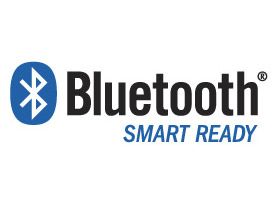Bluetooth 4.2 To Bring Increased Privacy, Speed And Efficiency

We haven't seen too many Bluetooth 4.1 (a specification finished only a year ago) devices yet, but the Bluetooth 4.2 specification has already been published. The new version brings privacy protections, increased speed for data transfers, and a more efficient design.
With the rise of Bluetooth 4.0 LE devices and "beacons," the privacy of new devices has decreased because they could be discovered automatically, unless the owners of those devices turned off Bluetooth. In many devices, Bluetooth is turned on by default, which means most users may not even be aware that they're broadcasting to others nearby.
Bluetooth 4.2 adds a new feature that allows smartphone owners to give permission before their devices start being tracked by others, such as store owners. This essentially means that you can now "whitelist" some stores, while others can't "wake up" your device anymore when you go past them.
This new feature should also slightly improve the battery life of smartphones, especially for people who often go past stores that track Bluetooth devices, because now these devices won't be constantly awakened by the stores' beacons. Bluetooth 4.2 also fixes a security issue with the pairing mechanism that could allow attackers to take control of smartphones.
Bluetooth 4.2-enabled devices will get transfer speeds that are 2.5 times faster than before, thanks to a tenfold increase in packet capacity. The higher packet capacity will lead to fewer transfer errors, which means energy efficiency will improve as well.
The new spec is also focused on the development of the IoT market by adding support for IPv6, which now allows devices supporting Bluetooth 4.2 to connect directly to the Internet if there's a Bluetooth/Wi-Fi-enabled router nearby. The Bluetooth-enabled IoT devices will no longer need a smartphone to connect to the cloud.
One important feature that's lacking from this spec is a mesh networking protocol. Bluetooth already has a mesh-focused competing protocol called "Thread," which is supported by ARM and Google, two major players in the IoT market.
Stay on the Cutting Edge
Join the experts who read Tom's Hardware for the inside track on enthusiast PC tech news — and have for over 25 years. We'll send breaking news and in-depth reviews of CPUs, GPUs, AI, maker hardware and more straight to your inbox.
Bluetooth 4.0 or 4.1 devices will be able to receive the privacy features of Bluetooth 4.2 through a software update, but the speed and efficiency improvements will only come with new hardware.
Follow us @tomshardware, on Facebook and on Google+.
Most Popular



